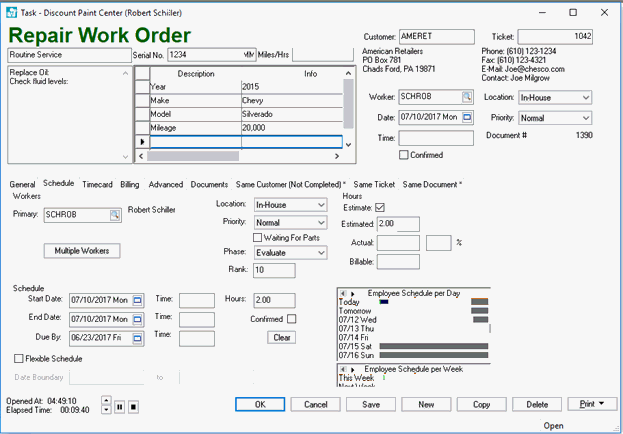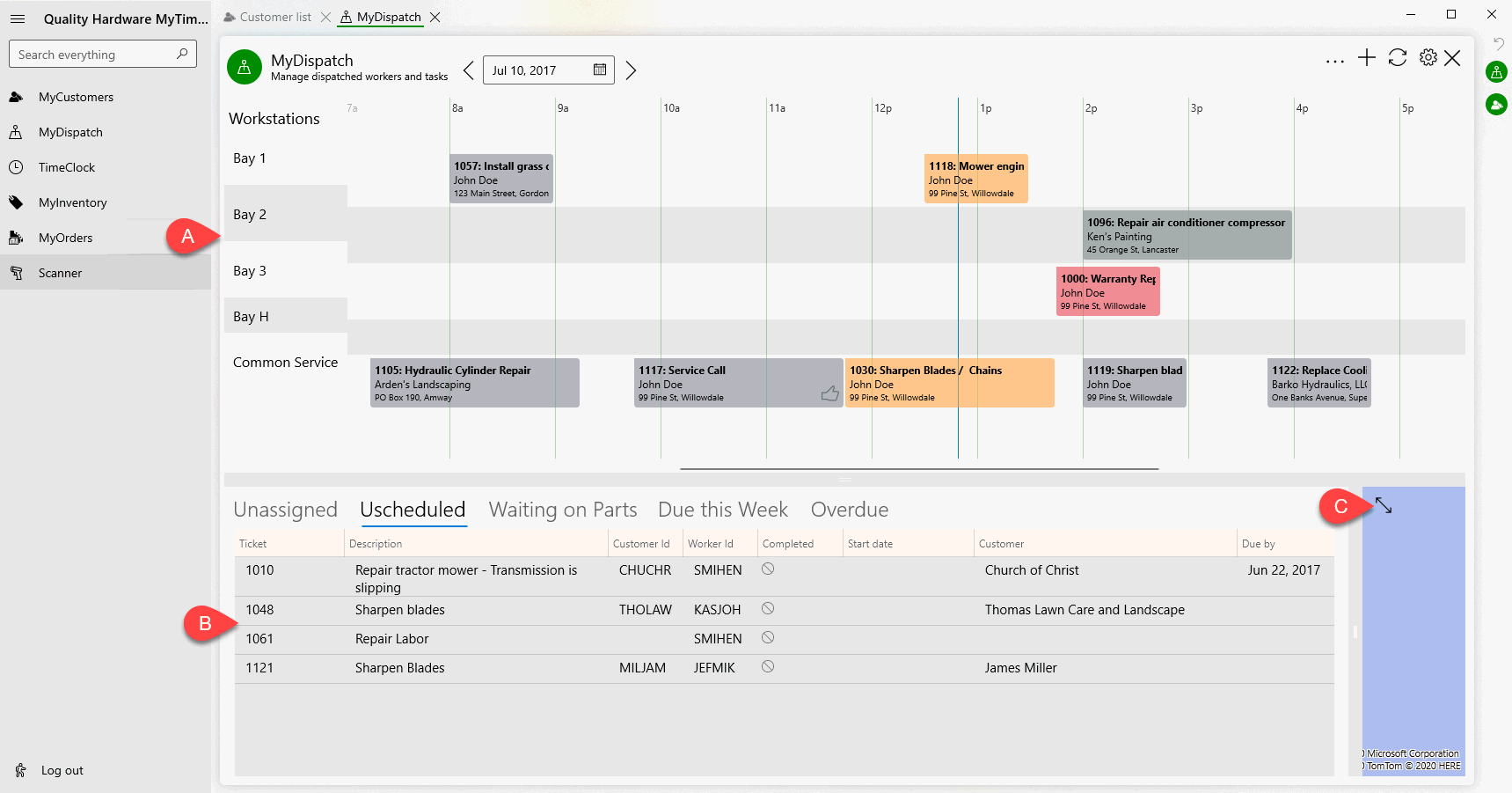
The
scheduling settings for a task are found within the Schedule
group on the Schedule tab of the
task. See example shown below:

The task Priority settings may change the task list color to highlight High or Emergency tasks from normal Priority tasks.
Enable the Waiting For Parts option if the task is on hold until the needed parts arrive.
The optional Phase and Rank settings are used when a pipeline task has multiple phases. Review the Pipeline section for more details on creating Phase settings or using the pipeline options.
The Start Date should reflect the scheduled time for this task or work order. The End Date should be used if the work order spans multiple days.
The Time entries should be populated with appointment times if the work order is scheduled. The Time entries can be kept blank if exact schedules are not required.
The Hours value reflects the amount of time that is reserved within the schedule charts. This value can be entered by the user or calculated from the Estimated value.
Review the Estimated, Billable, and Actual Time section for details on the Hours settings and the Estimate option.
The Confirmed option should be enabled if the schedule values reflect a confirmed appointment. The Confirmed option identifies the task as an appointment. Appointments will show on the schedule view or the charts in the color green. Review the Schedule Charts section for more details on the schedule charts.
Schedules can be viewed using 2 different methods:
List View: Querying all the open tasks and grouping them by due data, scheduled start date, or employee. This list view option is a good option to list tasks grouped by due date and other query options. Review the Customizing Task Views > Creating Queries section for instructions on querying the list. Review the Customizing Task Views > Creating Task Groups section for instructions on grouping tasks by due date or other schedule date.
Schedule View: The schedule view is ideal to determine schedules, available times, and changing task schedules or employees. The schedule view includes calendars to view dates quickly, schedule charts, and employee / Work group options. The color graphs display a visual chart of an employee's schedule or work group schedule. Review the Schedule View section for more details on this view. Review the Schedule Charts section for more details on the color scheme or details of the schedule charts. Review the Work Groups section for more details on the work group scheduling option.
Using MS Outlook: EBMS Tasks can interface with MS Outlook to create appointments within the MS Outlook calendar. Review the CRM > Creating Calendar Appointments section within the Sales documentation for more details on the EBMS and MS Outlook interface.
Tasks can be temporarily moved to a pending or waiting for parts list by changing the status. Review the Task Status Settings for more details on the status of the task.
Review [Sales] CRM > Map to use the map tab tools to view directions or create a route.
The MyDispatch app is a graphical option to scheduling tasks with the following 3 panes:
Schedule pane
Task list pane
Map pane

Review MyDispatch > Overview for details.
Create multiple views including overdue task list, list open tasks group by employee, and an employee schedule view as well as others. Creating a number of different views is a convenient way to view different task lists or schedules connivent. Review the Customizing Task Views > Creating Multiple Views section for more details on creating new views.